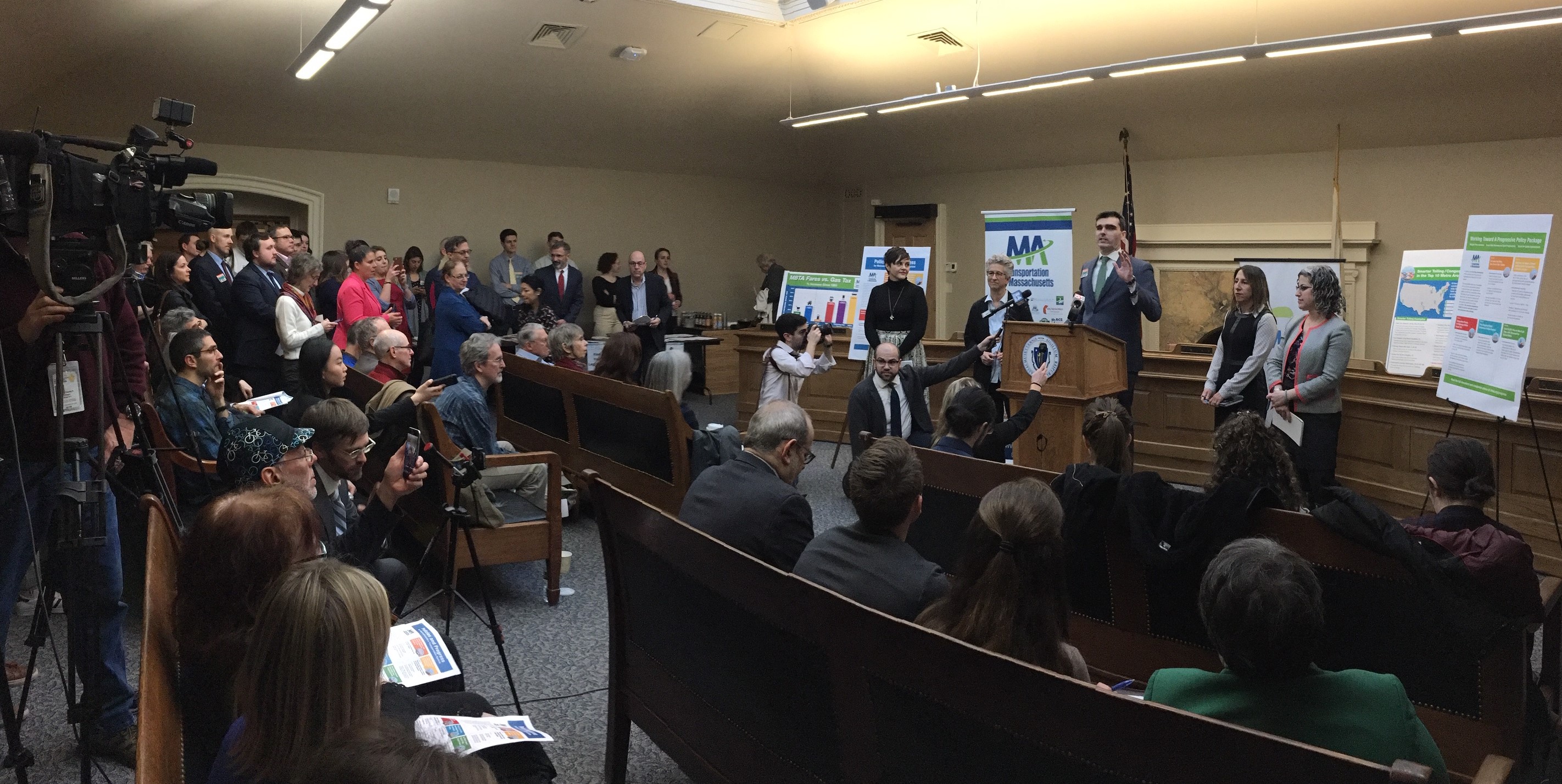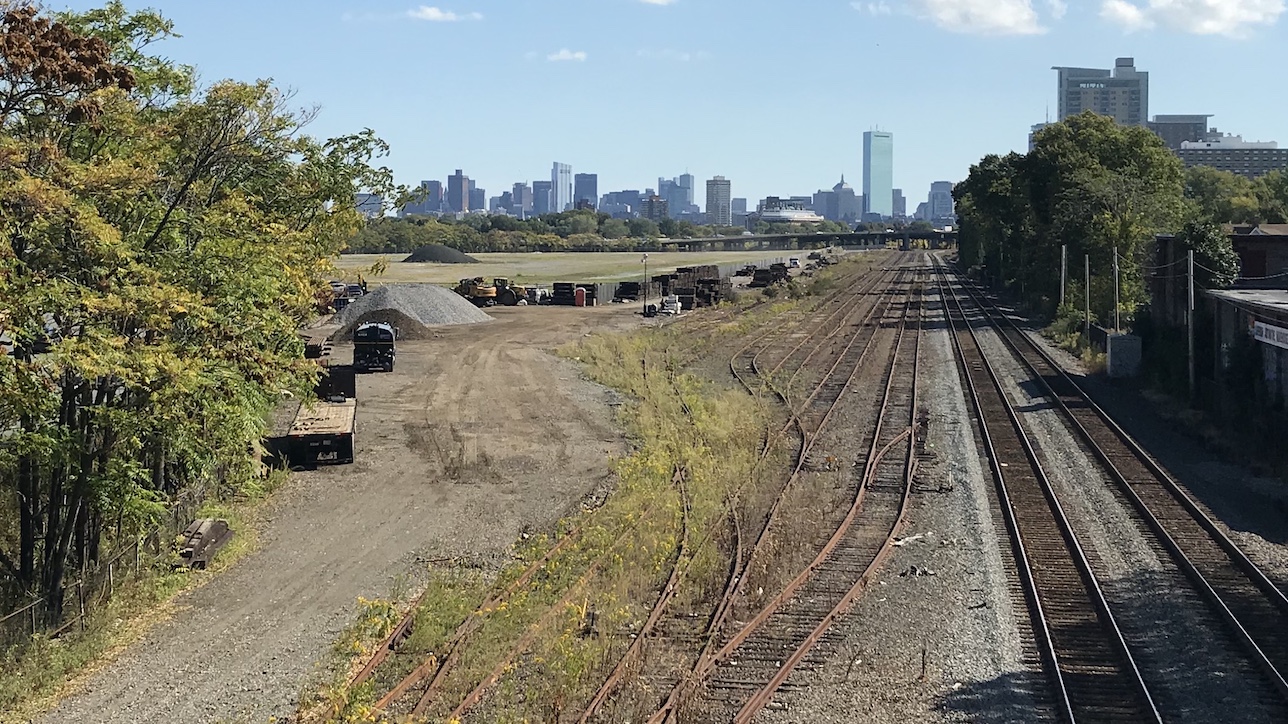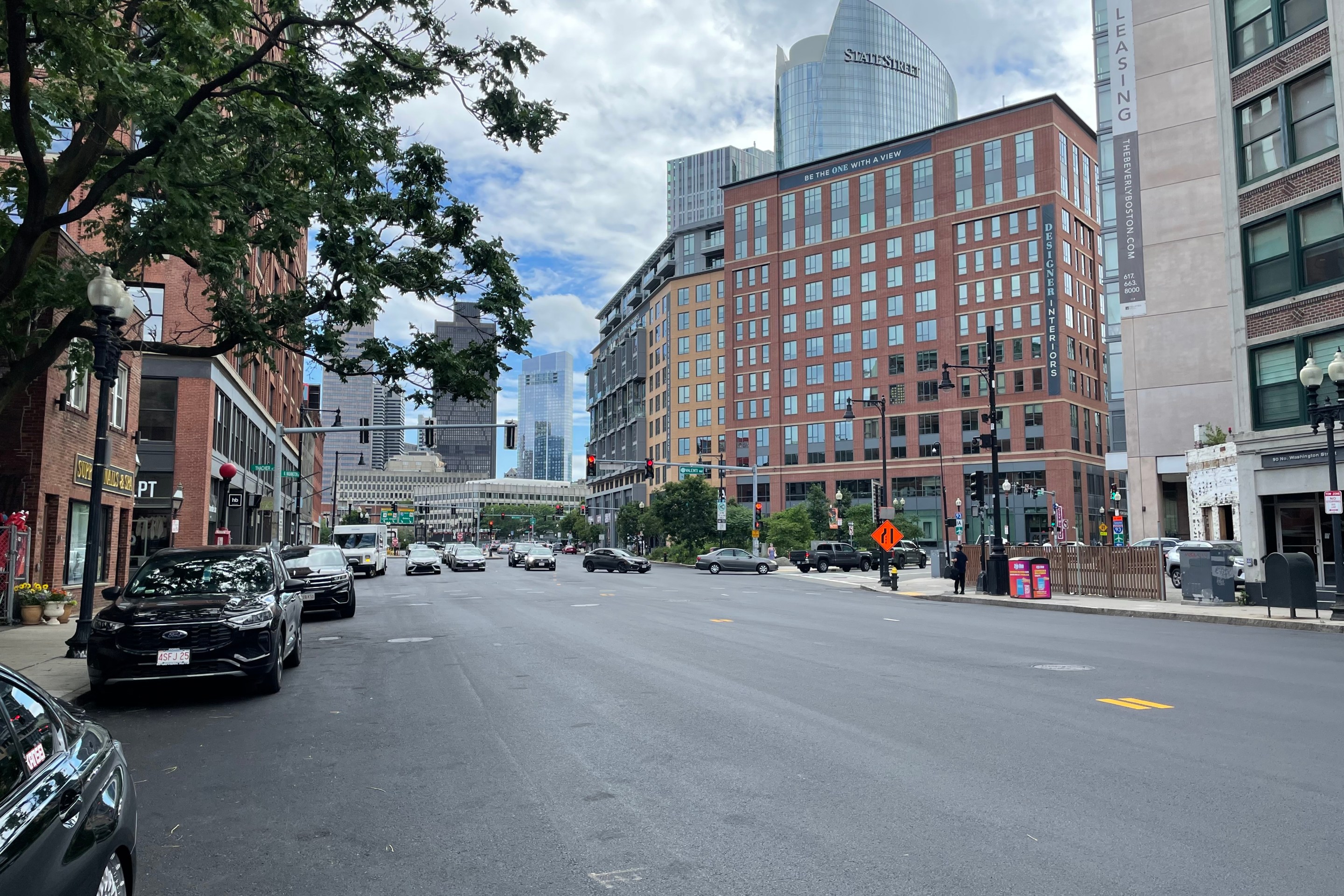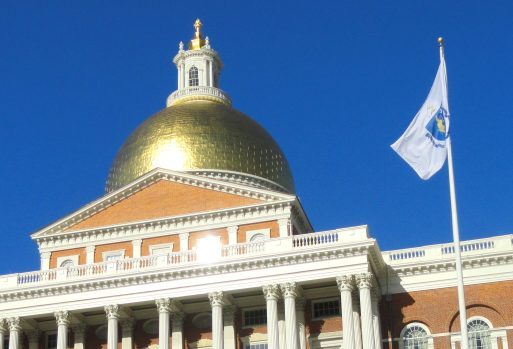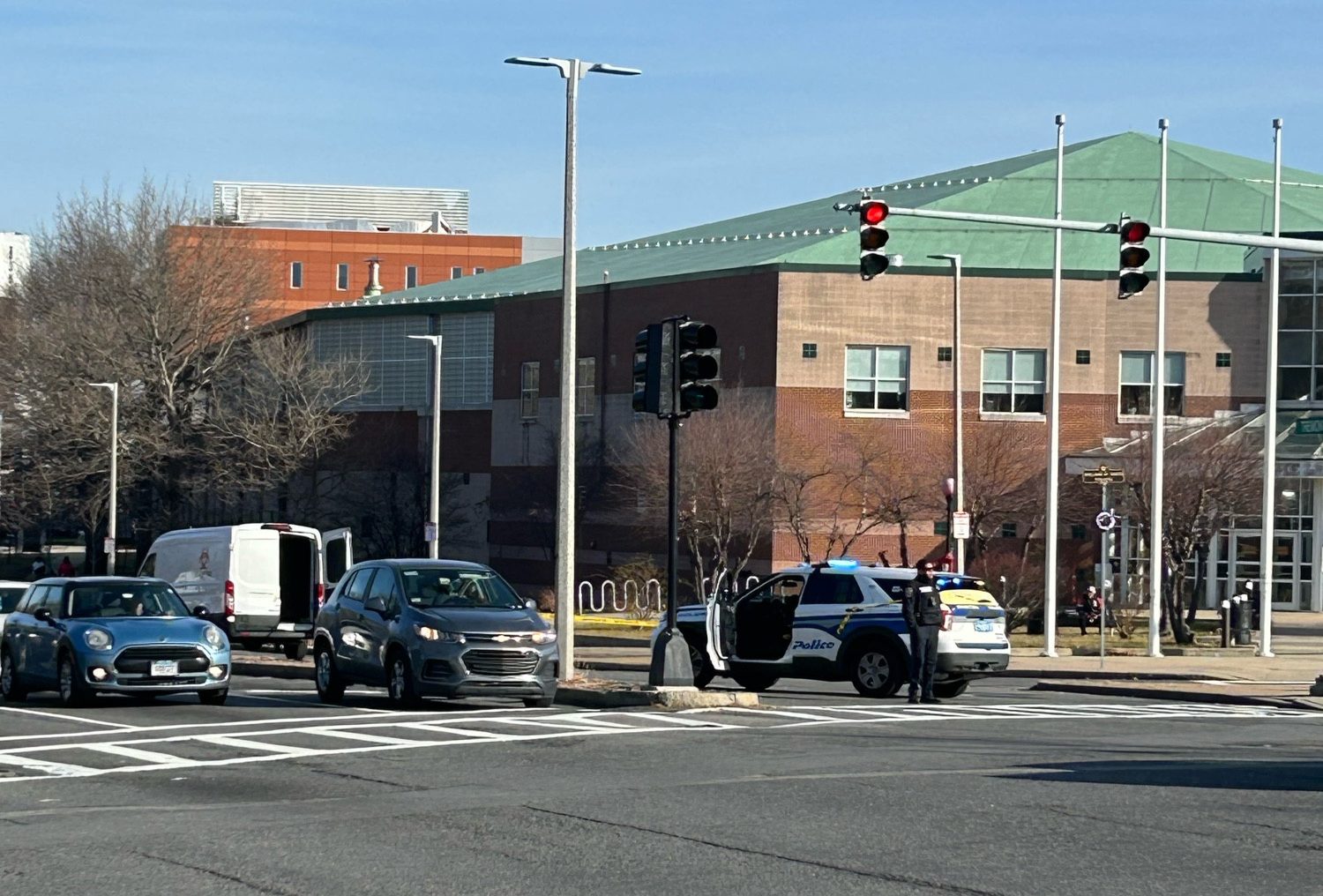The Transportation for Massachusetts (T4MA) coalition hosted a "Call to Action" lobbying event at the State House this morning to connect dozens of citizen advocates with their lawmakers and press for the passage of a comprehensive, statewide transit funding bill this spring.
Pumping up the assembled advocates in a crowded State House meeting room, T4MA Director Chris Dempsey punctuated a long inventory of the Commonwealth's transportation challenges with an emphatic refrain: "We can fix this" (which also served as a Twitter hashtag for the event).
"And part of the way we're going to fix this is with all the amazing advocates we have today," said Dempsey.
"We can fix this," agreed Stacy Thompson, executive director of coalition member LivableStreets (disclosure: Thompson also serves on the StreetsblogMASS board of directors). "But we need every person in this room to pick up the mantle - literally pick up the packet that you were given today - because we need your voice. We need you to reach out as individuals, we need you to activate your networks. Ask the Legislature to pass a comprehensive bill that will increase funding."
While House leadership is reportedly discussing various ideas for raising new revenue, no specific proposals have yet emerged from the State House.
For its part, the T4MA coalition has been advocating for a package of five policies that would increase transportation funding while controlling pollution and congestion, including a 25-cent gas tax, adoption of the Transportation and Climate Initiative, congestion pricing in the Boston metropolitan area, higher fees on Uber and Lyft, and the authorization for local-option taxes for transportation improvements.
Rep. Sarah Peake (D-Provincetown), another of the speakers at Tuesday's event, said she was "enthusiastically anticipating" the transit funding bill that House leaders have been promising for several months now.
Peake reported that Rep. Aaron Michlewitz (D-Boston), the chair of the Ways and Means committee, has been reaching out to various caucuses in the State House "to have a full-throated and robust conversation about this."
"I believe, and I am incredibly optimistic, that this transportation bill is going to be a generational game-changer in how we fund, and more importantly how we provide public transit for the citizens of Massachusetts," said Peake.
Want to contact your legislators? Find their contact information here.
